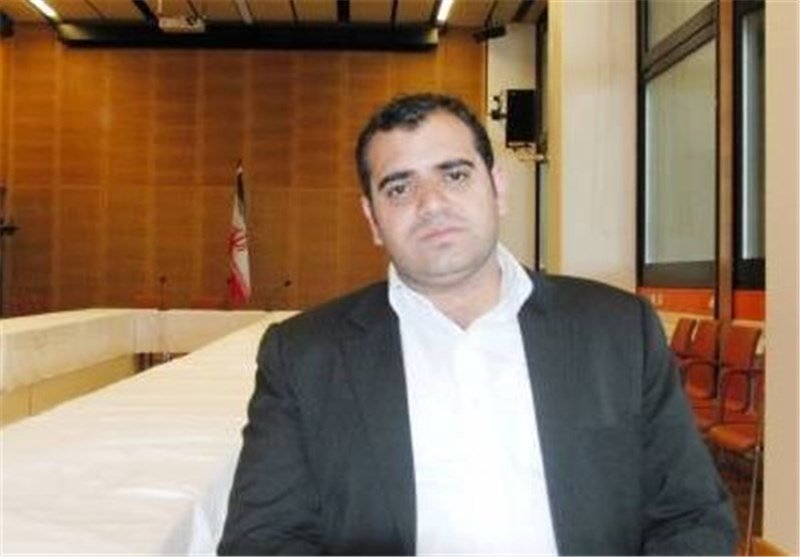Three American Female Politicians in Confrontation with the JCPOA

TEHRAN _ In recent days, the name of Nikki Haley has been considered by many international analysts. Nikki Haley is described as a diplomat who, with her insistence on cancelling the JCPOA by Trump, has made lots of knots in the U.S. foreign policy. The fact is that since the beginning of 2000, three women have played a very significant rolein the U.S. foreign policy. One of these was Condoleezza Rice, the national security adviser and former U.S. secretary of state during George W. Bush's presidency.
After the end of Bush presidency and during Obama's presidency, we saw Susan Rice's great role as U.S. National Security Advisor.
Susan Rice initially, as the United States ambassador to the United Nations, played a significant role in the intensification of the Security Council's multilateral sanctions against Iran. Susan Rice continued to work against our country as the U.S. National Security Advisor. Right now, following the presence of Donald Trump at the White House, we are witnessing the highlighted presence of Nikki Haley in the U.S. foreign policy. Nicky Haley is now a United States ambassador to the United Nations. Here we look at the positions of each of these three women as "American diplomats" on Iran's nuclear program:
Condoleezza Rice; attempts to refer Iran's file to the Security Council
At the time when Condoleezza Rice served as the Secretary of State of the United States and in George Walker Bush administration, her main concern was to send Iran's nuclear file to the Security Council and impose multilateral economic sanctions on Iran. In April 2005, about 12 years ago, Rice announced at a press conference that she was taking serious steps through Bush administration to send Iran's case to the Security Council. The former Secretary of State said:
"Bush administration is still considering the referral of Iran's nuclear case to the UN Security Council in order to stop its nuclear weapons program. If the European negotiations do not lead to a result, then the option to refer the case to the Security Council remains open; an action that could impose economic punishments on Iran. Washington will make the final decision to adopt a tougher stance against Iran's nuclear program at the UN Security Council. "
Susan Rice; attempts to set up and intensify sanctions against Iran
Undoubtedly Susan Rice, the former United States ambassador to the United Nations and former U.S. national security adviser, has played a major role in tightening sanctions against Iran. However, the name of Susan Rice was attended to by the addressees of Iran's nuclear file between 2013 and 2015. During these two years, Susan Rice advised Obama on how to deal with Iran's nuclear case. These consultations were of such an importance to the former U.S. president, who, even in vital cases, preferred her to people like John Kerry and Joe Biden.
For example, Susan Rice is referred to as the one person who played an important role in extending the seven-month nuclear talks (in December 2014), while the parties of the nuclear talks were ready to agree on a general statement. Also during the final round of the Vienna nuclear talks which resulted in the signing of an agreement between Iran and the members of the 5 + 1, Susan Rice played a crucial role in defining the process of returning sanctions against Iran.
From the very beginning, there was a dispute between Secretary of State John Kerry and Obama's National Security Advisor Susan Rice on the crucial issue of lifting Iran's sanctions in the UN Security Council, which this disagreement led to the failure of the U.S. president to express a definitive statement on this controversial issue. Finally, Susan Rice could draw Obama's attention to be stricter in lifting sanctions of the Security Council.
Nikki Hayley; Trump's main encourager in dealing with the JCPOA. Right now we are facing a person named Nikki Hayley as the United States representative to the United Nations. A hardline person whose main concern presently is to become U.S Secretary of State. In November 2016, Donald Trump announced that he intended to nominate Nikki Hayley as the United States Ambassador to the United Nations. On January 24, 2017, the Senate appointed her as the United States Ambassador to the United Nations with 96% of the vote.
Nikki Hayley is the main encourager of Donald Trump in his recent rivalry with Iran. The Politico announced in its report that it was Nikki Haley, the U.S. ambassador to the UN, who against the caution of other members of Trump's administration, paved the way for the cancellation of the JCPOA. In early July, Trump announced Tehran's commitment to Iran's nuclear deal with reluctance. The announcement of this commitment by the U.S. government was encouraged by Rex Tillerson and James Mattis, the Secretaries of State and Defense.
Right now, Nikki Haley has become virtually the closest person to Trump in the field of U.S. foreign policy. This is while many of Trump's entourage warned him of the consequences of following this radical diplomat. As you can see, all these three female politicians, regardless from the party they belonged to, played a direct and highlighted role in confronting the Islamic Republic of Iran and our peaceful nuclear program.
Hence, it must be emphasized again that there is essentially no difference between the two Democratic and Republican parties in the United States over the confrontation with our system and our nation and both of them play the same role in the same context in this regard.
